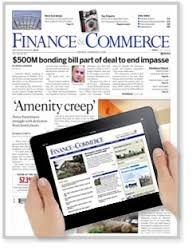The world is today passing through the Age of Commerce. Different countries no longer strive for self-sufficiency, nor they modify their culture and standard of life to meet purely national needs. What one country lacks is supplied by another country. What a particular region enjoys is soon desired by neighboring regions. Exchange and barter of commodities are now carried on, on international scale. The banker acts as an expert intermediary who smooths many difficulties. Hence the prospects are unlimited for those who wish to extend regional and national markets on an international scale. The whole world is lying before them tempting, challenging, offering immense prospects to one who has the intelligence, imagination, and daring to take the one step forward that is needed. 
Of course, it is only the right man, the man having the proper qualification who can be expected to succeed in this arduous and not very easy enterprise. Character and a degree of specialized knowledge are necessary. To succeed in any commercial line it is necessary to be honest. The sharper’s market is limited and temporary one. Engaged in a job of getting the lagest profit in the easiest way he remain blissfully unconscious of the with which he is crashing to his ruin. Next to honesty, one must be hard-working. This , of course, is the minimum needed for success in all spheres of life. It is good if the business man has the capacity for creating confidence in his assistants as well as in his clients. This involves that indefinable quality called personality. He must be reasonable, persuasive, sweet-mannered and high-minded. He must subordinate purely selfish consideration to some higher end in view. Hence, a modern business man needs background of culture , not necessarily the culture patented in a University, but a culture imbibed through association with finer types of men.

“A true-bred merchant is the best gentleman in the nation,” said the author of Robinson Crusoe. One only must see that one does not abuse gentlemanly virtues to ungentlemanly ends to betray confidences, to be false to trusts. Some degree of imagination is also necessary to ensure that proper investments are made in anticipation of rising curve of demands. But imagination must be controlled so that it may not be a gambling with destiny. He is bad businessman whose itch for profits makes him gable with chance. If one wants to succeed in a commercial venture, one must know how to moderate one’s exceptions. Above all, one must be patient for, as the economist says , wealth is only deferred enjoyment. One must know how to stand and wait ; impatience has ruined many promising careers.

The immediate end of trade is, of course, a purely selfish end , that of making money. But if this were the sole of purpose of trade, it would put the merchant on the same level with the unscrupulous robber. Indeed as Nietzsche reminded us, “ Merchant and pirates were for a long period one and the same person” ,and he went on to say that “ Even today merchant mortality is really nothing but a refinement of piratical mortality.” But there is another aspect . Commerce has always been a great civilizing force. “ We exchange ideas when we exchange fabrics.” We make friends when we persuade buyers and our goods. We open up the gates of international association and that means an addition to knowledge, and incentive to invention, and a call for peace and good-will.
Generous commerce binds,
The round of nations in a golden chain.



